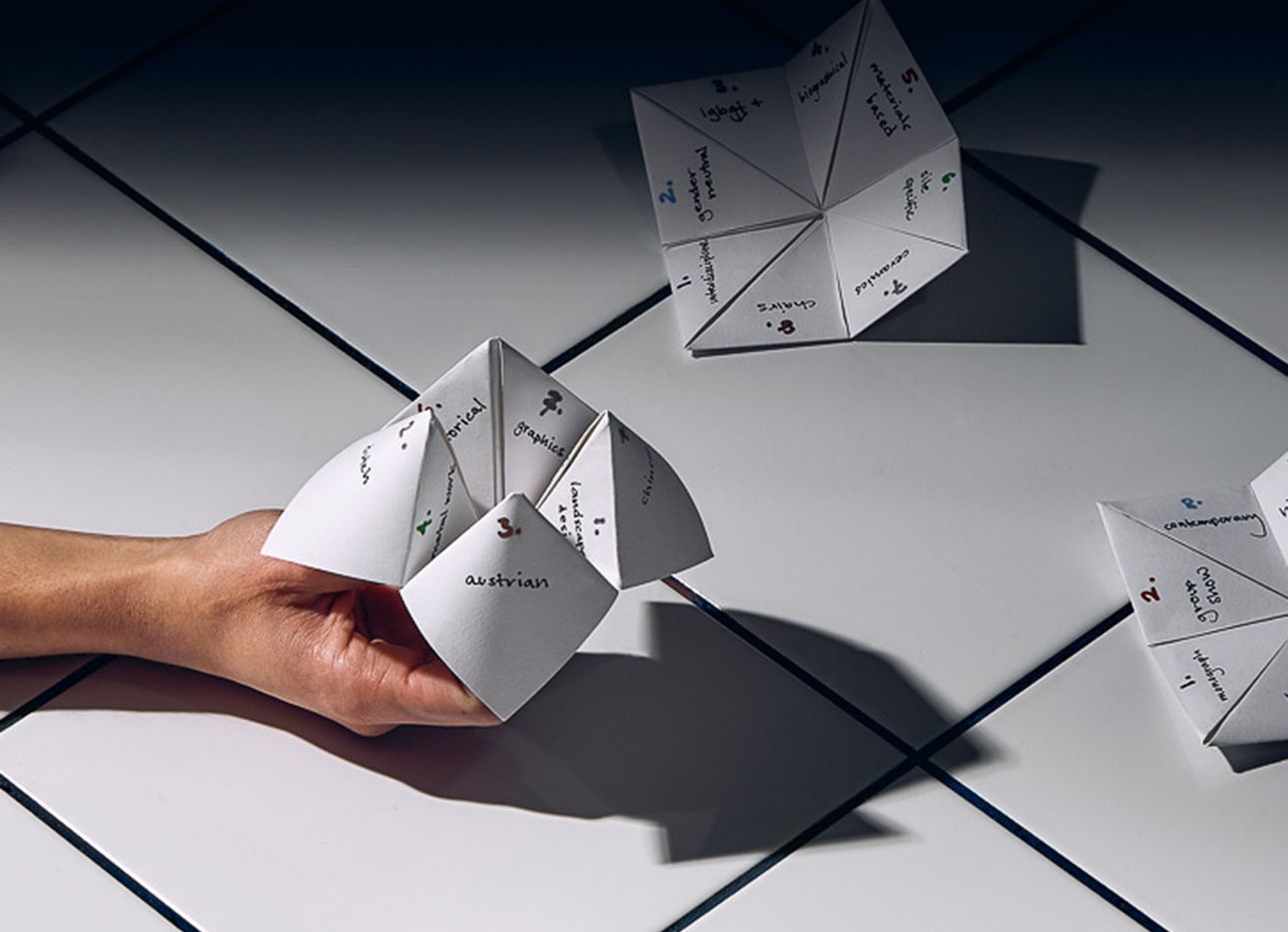
An Offbeat Exhibition in Madrid Puts the Focus on Curators
In 2019, Madrid-based designer Jorge Penadés founded Extraperlo, a nonprofit exhibition platform for unorthodox work and ideas. Its latest installment, “Curating Curators,” on view Feb. 18–20 at Penadés’s warehouse-like studio as part of this month’s Madrid Design Festival, upends the conventional approach of making exhibitions about objects and the designers who create them. Instead, Penadés, along with Milan-based curator Maria Cristina Didero, brought together 14 curators, journalists, and consultants from around the world to prove that those who support creativity behind the scenes are creative agents in their own right. “Designers, architects, and artists always have the spotlight,” Penadés says. “But we have a lot of people helping us [designers] make our work better. They deserve attention.”
Each participant contributed a project that encapsulates what curating means to them within the space of a shoebox (a welcome constraint, given that the projects were self-funded). Formats vary, as do the scope of the topics they explore. Among them: British design historian Libby Sellers sent a series of hand-folded origami fortune-tellers that suggest ideas for future exhibitions that border on the absurd. There’s also a film by French consultant Anne-Laure Pingreoun that explores 10 artists’ interpretations of death; a book by Los Angeles–based curator and industrial designer Jonathan Olivares (who made this skateboarding playlist for us last year) that details his life’s love affairs; and a doll from Polish writer and educator Matylda Krzykowski that looks strikingly similar to her.
The works, made in editions of varying numbers and all priced below 500 euros (about $600), let their makers express a different type of creativity—a highly imaginative, often humorous quality that’s not always readily apparent by walking through a presentation they’ve organized. “I’m much more interested in the person than the finished object,” Didero says of the show’s participants. “My motto is that design is about people, not about chairs.”